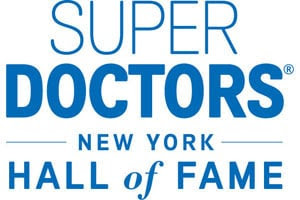Muscle & Nerve Pain
Musculoskeletal pain affects the bones, muscles, ligaments, tendons, and nerves. It can be acute (having a rapid onset with severe symptoms) or chronic (long-lasting). Musculoskeletal pain can be localized in one area, or widespread. It is most often caused by an injury to the bones, joints, muscles, tendons, ligaments, or nerves. This can be caused by jerking movements, car accidents, falls, fractures, sprains, dislocations, and direct blows to the muscle. Musculoskeletal pain can also be caused by overuse.
Lower back pain is the most common type of musculoskeletal pain. Other common types include tendonitis, myalgia (muscle pain), and stress fractures.
Cause
Anyone can experience musculoskeletal pain. It is most often caused by an injury to the bones, joints, muscles, tendons, ligaments, or nerves. This can be caused by jerking movements, car accidents, falls, fractures, sprains, dislocations, and direct blows to the muscle.
Musculoskeletal pain can also be caused by overuse. Pain from overuse affects 33% of adults. Lower back pain from overuse is the most common work-related diagnosis in Western society.
Poor posture or prolonged immobilization can also cause musculoskeletal pain
Symptoms
Symptoms of musculoskeletal pain depend on whether the pain is caused by an injury or overuse and whether it is chronic or acute. The symptoms can also differ from person to person.
Common symptoms include:
- Localized or widespread pain that can worsen with movement
- Aching or stiffness of the entire body
- The feeling that your muscles have been pulled or overworked
- Fatigue
- Sleep disturbances
- Twitching muscles
- The sensation of “burning” in your muscles
Diagnosis
Diagnostic procedures that may reveal muscular disorders include direct clinical observations. This usually starts with the observation of bulk, possible atrophy or loss of muscle tone. Neuromuscular disease can also be diagnosed by testing the levels of various chemicals and antigens in the blood, and using electrodiagnostic medicine tests including electromyography (measuring electrical activity in muscles), nerve conduction studies, and autonomic nerve studies.
In neuromuscular disease evaluation, it is important to perform musculoskeletal and neurologic examinations. Genetic testing is an important part of diagnosing inherited neuromuscular conditions.
Treatment
In terms of treatment for neuromuscular diseases (NMD), exercise might be a way of managing them, as NMD individuals would gain muscle strength. In a study aimed at results of exercise, in muscular dystrophy and Charcot-Marie-Tooth disease, the latter benefited while the former did not show benefit; therefore, it depends on the disease. Other management routes for NMD should be based on medicinal and surgical procedures, again depending on the underlying cause.


